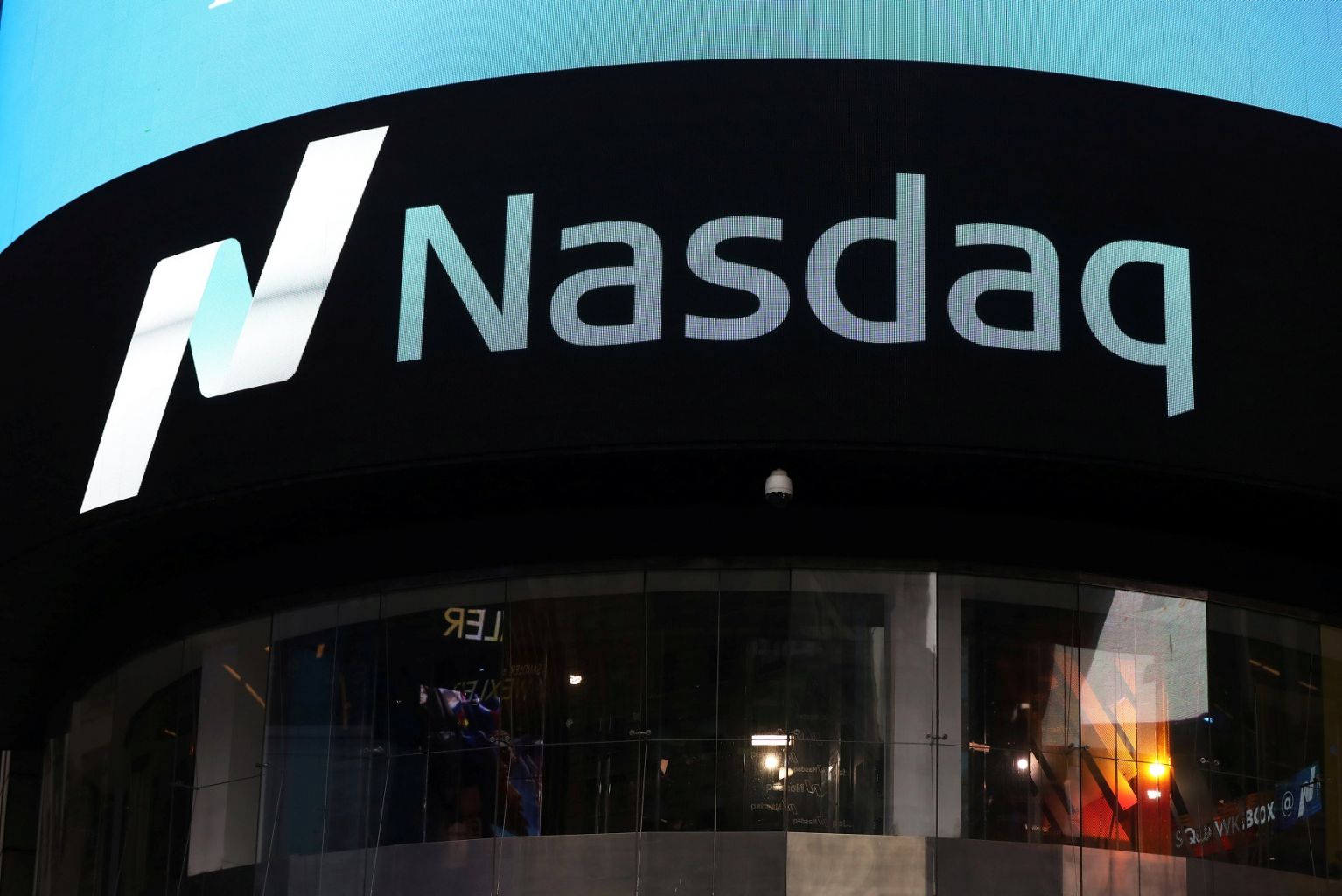Nasdaq loser board strewn with big names as Apple, Tesla plunge
Sign up now: Get ST's newsletters delivered to your inbox

A view of the exterior of the Nasdaq market site in Times Square, New York.
PHOTO: REUTERS
Follow topic:
NEW YORK (BLOOMBERG) - For investors who were accustomed to the invincible leadership of tech stocks, the bull case is looking shakier by the day.
Just look at the Nasdaq 100 index. For a second session, the tech-heavy benchmark fell more than 1 per cent, poised for the longest streak of losses of this size since December. Leading the retreat were Baidu Inc. and Tesla Inc. as concern over their respective earnings sent the stocks down at least 5 per cent.
Chipmakers such as Xilinx Inc. and Qualcomm Inc. also lagged toward the bottom as the Trump administration's threats to choke Huawei Technologies Co. hit some of the biggest component-makers. Down 12 per cent in May, the Philadelphia Stock Exchange Semiconductor Index is heading for its worst month since the 2008 global financial crisis.
Another victim of trade angst is Apple Inc., the iPhone maker that sits in the crossfire of a new round of tariff hikes between the US and China. Its stock sank 3 per cent to a two-month low. Amid deteriorating sentiment, the FANG block of tech giants, Facebook, Amazon, Netflix and Google's parent Alphabet, fell in 12 of the past 15 sessions, a streak of losses not seen since 2016.
From earnings trends to political dynamics, it is getting hard not to notice an unfavorable shift in the backdrop for tech. Up 17 per cent, the Nasdaq still has a shot at beating the market for the 10th time in 11 years. But the leadership is waning, with the index trailing the S&P 500 in May by the most this year.
"Honestly, all we can say right now is 'come on,' why would one want to own equity risk here given a pronounced slowdown in global growth, rich valuations in the context of flat earnings growth (at best), and an unraveling of the trade narrative," said Peter Cecchini, global chief market strategist at Cantor Fitzgerald LP.
"The Huawei dispute is emblematic of the challenges facing the broader negotiation." Investors have flocked to tech stocks for years, drawn by the appeal of superior growth. For 15 straight quarters through last June, tech profits outpaced the S&P 500, with the growth gap averaging 6.3 percentage points. But that edge is quickly disappearing.
Profits for the first quarter fell more than 6 per cent, the worst in a decade, as products such as smartphones entered a maturing phase and parts makers like semiconductor companies saw weak demand from a range of end markets including data centers. While analysts predict a fourth-quarter rebound, growth will be essentially flat for the year, data compiled by Bloomberg showed.
Analog Devices Inc., a chipmaker due to report quarterly earnings Wednesday, may offer some clues on the impact from the Huawei ban. The company gets 5 per cent of its sales from the Chinese tech giant and may forecast US$60 million (S$82.6 million) of lost revenue due to Huawei issues for the fiscal third quarter, Credit Suisse estimates.
Synopsys Inc., also scheduled to announce results Wednesday, may be hurt less by the Huawei ban than Analog Devices, according to RBC Capital Markets. The firm notes companies with Huawei exposure include: Cadence Design Systems, Broadcom, Qorvo, Qualcomm, Skyworks, Xilinx and Marvell.
For Analog Devices, the Huawei effect may cast a shadow on the robust spending by communications companies in the rollout of critical 5G wireless networks that's seen as a force to potentially counter weakness in demand from other businesses, according to Deutsche Bank. The U.S. has pressured both allies and foes to avoid using Huawei for 5G networks that will form the backbone of the modern economy.
"We see this recent strength being potentially offset by trade tensions with China as well as potential revenue pull-ins & inventory build at Huawei," Deutsche Bank analysts wrote in a note to clients.
Shares of Analog Devices fell 2.4 per centwhile Synopsys dropped 4.1 per cent.

